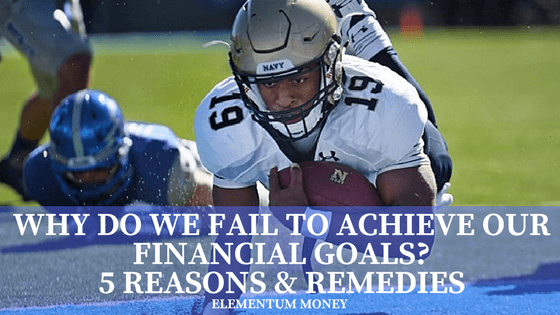
While it’s easy to say – manage your money, or plan your money better, sometimes the best way to really set into action is knowing how some people do it.
So, for the concluding part of the series, I decided to ask this fantastic set of ladies (Hop over to read more about them here) for practical tips on budgeting, getting over the fear of markets to invest and one book they would recommend as a must-read.
As usual, I was quite enlightened and inspired by what they said. Here’s hoping it has the same impact on you, spurring you into action.
What is your idea of a budget and what do you recommend to our readers?
Melanie @ Dear Debt says:
Budgets are all about knowing your numbers — how much you earn and how much you spend. And tracking it all. I use Mint.com to help me with this.
Liz @ Chief Mom Officer says:
So I have a very simple budget that I do in Excel. I have a monthly and an annual budget because expenses vary greatly month to month. I have a number of sinking funds for expenses like pets, car repairs, car taxes, gifts, and so on. This is so when those larger, irregular expenses come up I don’t have to worry about them. I track every dollar spent, and re-do my monthly budget regularly to make sure I’m adjusting as the month goes on.
Most of my bill paying, savings, and investments are automatic. This helps make sure I put my money to work regularly and also helps make sure I’m not spending when I should be saving.
Kristine @ Frugasaurus says:
We do not budget in the traditional sense that we allocate a pre-defined amount to each category. We found that it prompted us to spend more, not less. Instead, we use a zero-budget where we try to spend nothing in any given category and work our way from there.
Sometimes that means paying nothing but food, rent, electricity, phone and student loans for months. Other months that means having a social event with friends, or finding/buying something we need. We do not berate ourselves, but we are pretty frugal by habit, and save a lot of money this way.
Penny @ She Picks Up Pennies says:
A budget can be so simple. We use basically the same budget each month. It’s a template really so we have an idea of what we are looking to spend. For me, the real magic has to do with tracking my actual spending and then comparing it to my budget. That way, I can see if I’m being realistic with my plans and purposeful with my spending. It is a great accountability tool.
Ms. Financier @ Feminist Financier says:
I use an approach called scarcity budgeting. This is the only approach to budgeting that I’ve found works for my personal habits and approach.
The idea is to set up your finances such that you do not have excess money in your checking account. By creating scarcity, you don’t have the ability to comfortably over-spend or let your money sneak away from you. In scarcity budgeting, you automate all your expenses (savings, regular bills, investing) and only “indulge” in what you have left over. It requires some planning and tracking of expenses early on, to ensure you’re not going to come up short, but I’ve been using this approach for over a decade and love it.
Emilie @ Wise Mind Money says:
I budget loosely. I use a budgeting app (Every Dollar is what I use, but there are a ton of great ones out there); at the beginning of the month I plan out all the money that should be coming in and all the money that will be going out, and I adjust accordingly as needed as the month goes on. Some months I spend more on eating out, some months I spend more on pet care, etc.
I always prioritize bills that have to be paid (utilities, mortgage, student loan payment, etc.), then plan out spending on groceries, entertainment, and other expenses that might vary. I also always make sure to plan to make extra payments on my student loans, since that is the biggest goal I’m working on right now. If I didn’t make it a part of my plan/budget to pay extra, I wouldn’t be as accountable to myself and might end up spending that “extra” money on something else.
My Take:
Personally, I find the idea of a budget very restrictive. I do two things to manage my money better – have a fixed, yet growing rate of saving by paying myself first and trying to gamify my savings. This leaves me with one cumulative lump sum of money to do all my spending with.
Second, a few months back I have started tracking all my expenses. This has been a great experience as I know what category I might be overspending in or doing well in.
Do you invest money in stock markets/mutual funds? If yes, how do you convince yourself to take the risk?
Melanie @ Dear Debt says:
I invest in index funds. I know I am playing the long game and not touching those funds. Historically, the stock market bounces back so I try not to get swept up in the emotions of investing.
Liz @ Chief Mom Officer says:
I’ve always invested money in the stock market. Frankly, it was the only way to achieve that goal of becoming a millionaire by forty. In order to make good returns, you have to take some risk.
I was an investor through the dot-bomb of the early 2000’s and the Great Recession of 2008 – and the first ten years I invested significantly (2000-2010) is commonly called “The Lost Decade” where there was no return in the market. So I’m well versed in the risks – but the rewards over a significant period of time are substantial.
The reason I’ve always done this is that I educated myself on what investing in the market is. It’s not gambling, despite what people think, nor is it a magic money-producing machine. Your investments are purchasing shares in companies, which have assets and make money. Over time, those companies will likely grow, and you will share in that growth. You also own part of those assets.
As Warren Buffett says, in the short term the market is a voting machine, but in the long term, it’s a weighing machine. You need to be willing and able to hold on for long periods of time to reap the benefits of the market.
Kristine @ Frugasaurus says:
No conviction involved. I read up on market rates and knew that the, in the long run, the market follows a positive slope, downturns included. As a student, I would put aside a small sum, maybe $20, every month and put into my funds. Over the years, it didn’t amount to a lot in terms of money, but since I did it for so long (10 years), I got to see compound interest at work. In the end, 40 {76b947d7ef5b3424fa3b69da76ad2c33c34408872c6cc7893e56cc055d3cd886} of the value in the account was dividends!
Once I got a job that paid me more decently, it was easier for me to up my investing to more than ten times that amount. I have all my money invested in index funds, with a mix of national, European and world-wide index funds. I have an automatic payment on my checking account, just like any other bill, and it is all automated. I only check it once a month to update my net worth spreadsheet.
I know I want to save for a downpayment, so only about 20 {76b947d7ef5b3424fa3b69da76ad2c33c34408872c6cc7893e56cc055d3cd886} of what I save in total is in the market, the rest is in a high-interest savings account ear-marked for mortgages. When we get that house, those numbers will probably change.
Penny @ She Picks Up Pennies says:
Yes, and I am still nervous about it. What did the trick for me was realizing that keeping my retirement money in a bank savings account that paid less than 1{76b947d7ef5b3424fa3b69da76ad2c33c34408872c6cc7893e56cc055d3cd886} interest actually meant I was LOSING money due to inflation.
Here I was thinking I was so awesome with money because I had saved ever since I started working as a teenager, but I really was not letting my money work for me.
Ms. Financier @ Feminist Financier says:
I started investing when I was in university and was inspired to do so because I really understood the power of compound interest. Knowing that the data suggests that the stock market provides regular returns over the long term inspired me to split my investment between a mutual fund and a group of individual stocks.
One of the stocks I bought crashed to zero – and I lost everything I invested. This money mistake taught me that trying to bet on individual stocks is a gamble. Today, I only invest in mutual funds and ETFs (Exchange Traded Funds), and have steadily seen my wealth grow while I’ve invested regularly.
Emilie @ Wise Mind Money says:
I recently opened a Roth IRA and invest in index funds. Since I’m paying down debt, I only invest a small amount right now but will invest much more once the debt is paid off.
To me, if you are otherwise in good financial standing (basic needs are taken care of, financially stable) it’s more of a risk NOT to invest because of the missed opportunity. Everyone always says that if you invest you have to have a long-term mindset, and it’s so true.
If the economy/stock market tanks, I’m emotionally prepared to ride it out. I expect ups and downs and I know that I’ve mentally prepared myself to persevere through the bad times to rake in the rewards.
My Take:
I used to be very scared of investing the little money I could put aside (on a meager starting salary in an expensive city) into the markets where it could erode. This was despite my father’s gentle, persistent and frequent nudges.
I have learned some lessons on the way but my investment journey has been worthwhile and exciting. I now know well enough to trust the markets as my best bet to beat inflation, in the long run. I invest in mutual funds and individual stocks.
For individual stocks, I read up extensively, check their numbers and then invest. For disproportionate returns, I believe it is essential to understand the fundamentals of value investing and invest in individual stocks.
What would be the one book you would recommend any woman starting on the personal finance journey, to read from cover to cover? Why?
Melanie @ Dear Debt says:
I highly recommend women read “Overcoming Underearning” by Barbara Stanny
Liz @ Chief Mom Officer says:
The book I would recommend changes depending on what kind of financial knowledge she already has. If she literally knows nothing at all about personal finance, and this will be the first book she ever reads, I would recommend The Automatic Millionaire by David Bach. He uses a lot of stories and covers all the basics you need to know in that book, and it’s an interesting read (rather than dry and technical).
For a woman who knows the basics but perhaps hasn’t been the best about putting them into action, I would instead recommend The Millionaire Next Door. This book will open your eyes and show you that millionaires aren’t the flashy big spenders you see glorified in the media. No, most millionaires are ordinary people who live below their means and save and invest for the future.
Kristine @ Frugasaurus says:
“Your Money or Your Life” by Vicki Robin. There will be a new edition released in 2018, and I am super excited about it. Learning the difference between making a living and making a life is so important in this day and age.
Penny @ She Picks Up Pennies says:
Honestly, I find blogs to be more helpful than books because I really learn more from personal stories. I also love that blogs are updated over time, so I feel like I am on the journey with the writer! If I had to pick one book, I think I would choose Vicki Robin’s Your Money or Your Life.
Ms. Financier @ Feminist Financier says:
Sallie Krawcheck’s Own It: The Power of Women At Work is a fantastic book. It is very data-based and includes fascinating research on the money gap between men and women. However, it also focuses on how women can build and grow powerful careers – which can be a tremendous path to sustainable wealth.
Emilie @ Wise Mind Money says:
I Will Teach You To Be Rich by Ramit Sethi. I started reading it in the bookstore and had gotten so far into it that I just HAD to buy it by the time I left. It’s easy to understand and digest, and it’s so informative and gives real, actionable, step-by-step instructions for improving your finances. It also focuses on the fact that you don’t have to try to do it ALL, but just start by doing SOMETHING to improve your finances and you’re further than you were before.
My Take:
Like Liz, one of my favorite books is – The Millionaire Next Door.
To me, another timeless book which led to a huge mindset shift for me was Robert Kiyosaki’s Rich Dad Poor Dad. It looks gimmicky and I avoided it for a long time. However, in a conversational manner and using the technique of two contrasting personalities, Kiyosaki was a good introduction to money and entrepreneurship mindset for me.
That, my dear readers, concludes our Womens’ Day series. I am really grateful to all the wonderful ladies who collaborated with me on this project.
Wishing you all an inspired Womens’ Week once again.
For any feedback, you know you gotta write to -> aparna@elementummoney.com

Take your first step today. Sign up for the Elementum Money Weekly Newsletter to download the Financial Feminist checklist. Also, get nuggets of financial wisdom with our 3 posts every week, directly to your inbox. Have more questions, feel free to send any of them my way at aparna@elementummoney.com.
Read the other posts in the series:





Leave a Reply